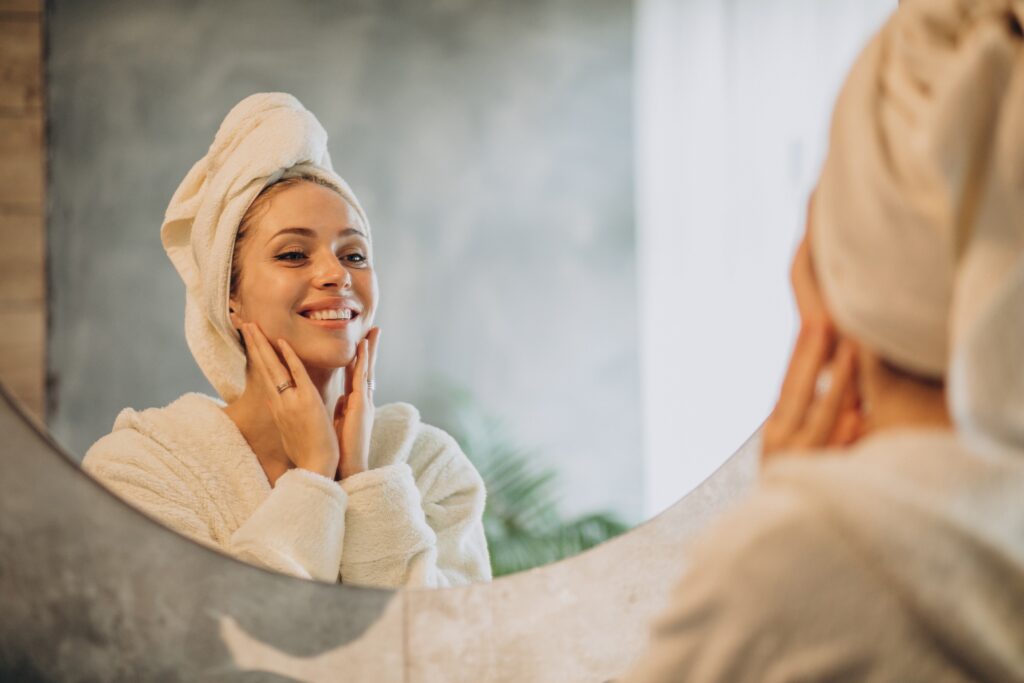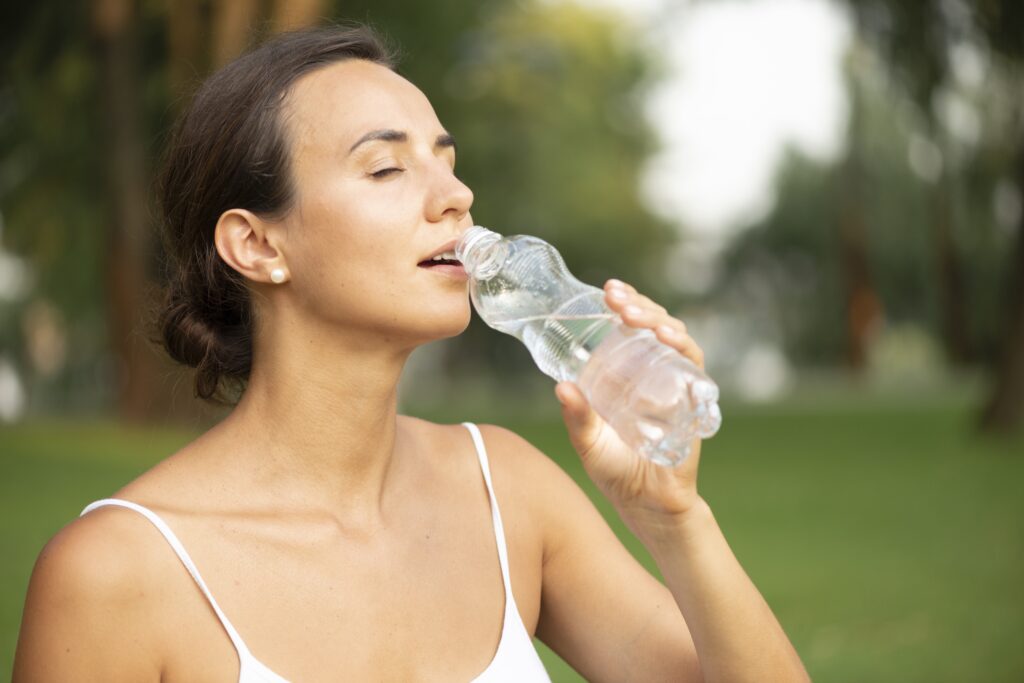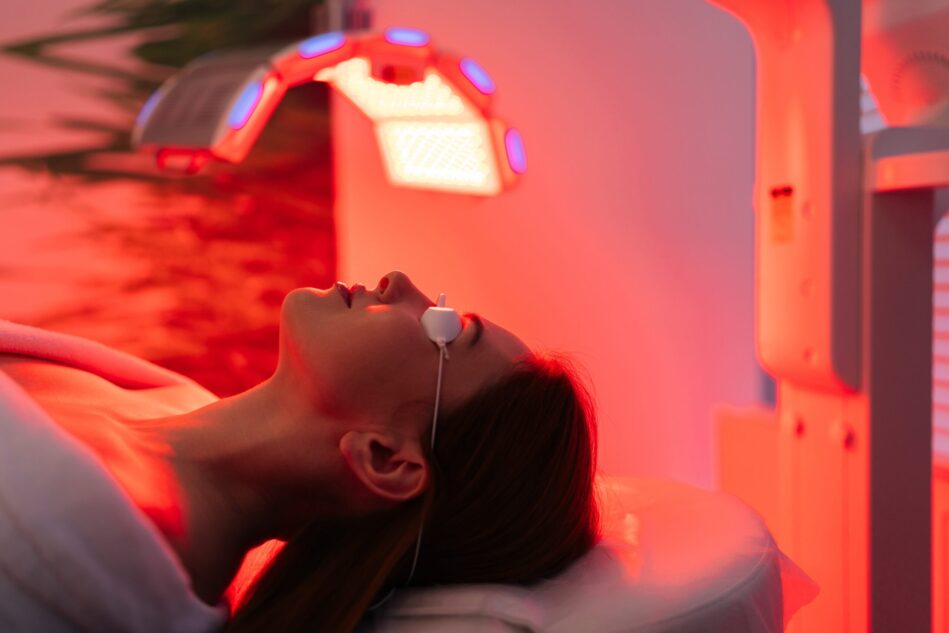Hey there, skincare enthusiasts! Have you ever wondered if those trendy treatments and age-old advice for flawless skin hold up under scientific scrutiny? Today, we’re diving deep into the world of skincare to explore three popular methods: Red Light Therapy, Probiotics, and Hydration.
Shedding Light on Red Light Therapy
Red Light Therapy (RLT) is gaining traction as a non-invasive solution for managing different skin conditions and promoting overall skin health. But how does it work? Also known as low-level laser therapy or photobiomodulation therapy, this treatment involves exposing your skin to low levels of red or near-infrared light. Research shows that red light therapy stimulates collagen production and enhances circulation in the skin. It accelerates wound healing, calms acne, and may help commonly associated symptoms experienced with psoriasis and eczema. It’s completely painless, making it a popular choice for those looking to rejuvenate their skin without needles or downtime. However, it is important to note that the results can vary depending on factors such as the specific parameters of light used (wavelength, intensity), treatment duration, and the condition being treated.

Healthy Skin from within with Probiotics
Probiotics are live microorganisms, often called “good bacteria,” that offer health benefits when consumed in adequate amounts. Think of them as friendly helpers keeping your gut happy and healthy! Now how does it affect skin you ask? Your gut and skin are BFF’s always chatting through what we call the gut-skin axis. The gut microbiome—the community of microbes living in your digestive tract—plays a crucial role in regulating inflammation and immune responses. When the gut microbiome is in balance, it helps control systemic inflammation, which can prevent skin flare-ups and support a clear, radiant complexion & support skin barrier function. They help fortify the skin’s defenses against environmental stressors and pathogens, which means less dryness and irritation. An imbalance in gut bacteria, often caused by poor diet, stress, or antibiotics, can lead to increased inflammation and a compromised immune system. This imbalance can trigger or worsen skin conditions like acne, eczema, and psoriasis. Probiotics help maintain this balance by promoting the growth of beneficial bacteria, thereby supporting a healthy immune response and reducing inflammation.

Hydration: Your Skin’s Best Friend
We’ve all heard that keeping yourself hydrated is essential for maintaining skin health and achieving a glowing, youthful complexion. But what’s the science behind it exactly? The skin’s outermost layer, the stratum corneum, is made up of dead skin cells that are held together by lipids (fats). These cells need moisture to stay plump and intact. When you’re well-hydrated, the moisture content in your skin cells is optimal, which helps to keep your skin barrier intact and prevents excessive water loss. Additionally, hydration is essential for cellular functions including metabolism and repair. Skin cells require water to perform biochemical processes, including the synthesis of new cells and repair of damaged ones. Water helps transport nutrients to skin cells and facilitates the removal of waste products. Hydration is fundamental to maintaining the skin’s moisture balance, supporting cellular functions, enhancing barrier integrity, improving elasticity & reducing inflammation. Your skin’s hydration game also depends on the weather, your skincare routine, and your overall health. Try to pair your water intake with hydrating skincare products and munch on water-rich foods like juicy fruits and crisp veggies.
Although Red Light Therapy, probiotics, and hydration each have scientifically backed benefits for skin health, individual outcomes can differ. It’s important to seek advice from healthcare professionals or dermatologists before beginning any new treatment or supplement. Achieving glowing skin typically requires a holistic approach, including a balanced diet, a consistent skincare routine, and healthy lifestyle choices. Whether you’re exploring RLT for anti-aging, probiotics for clearer skin, or hydration for a natural glow, make sure your choices are informed by scientific evidence to fully realize your skin’s potential.

